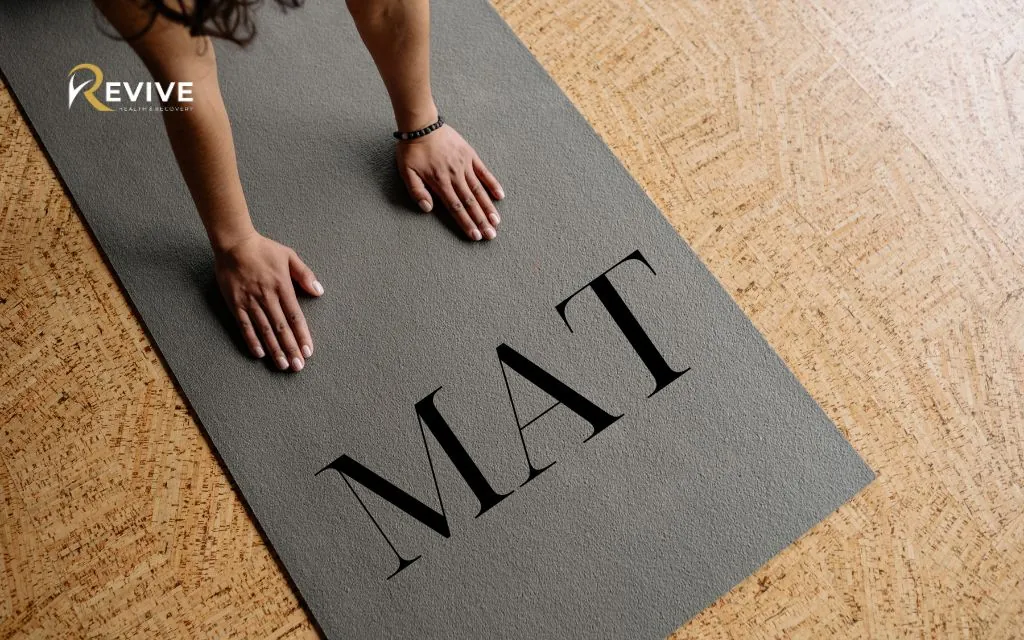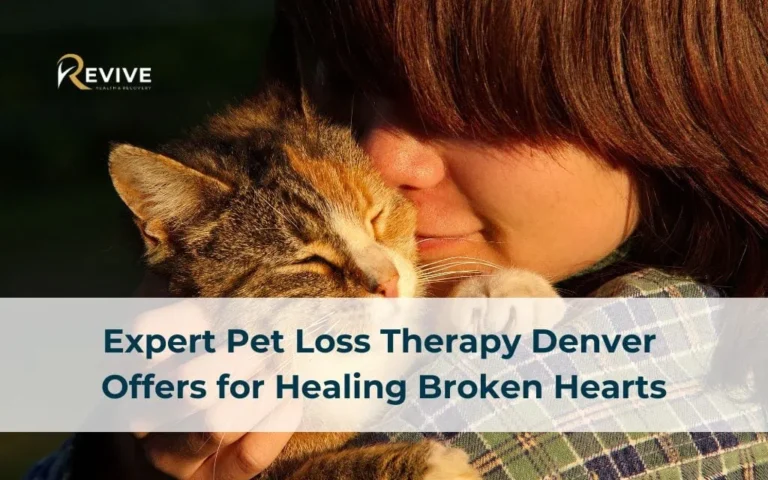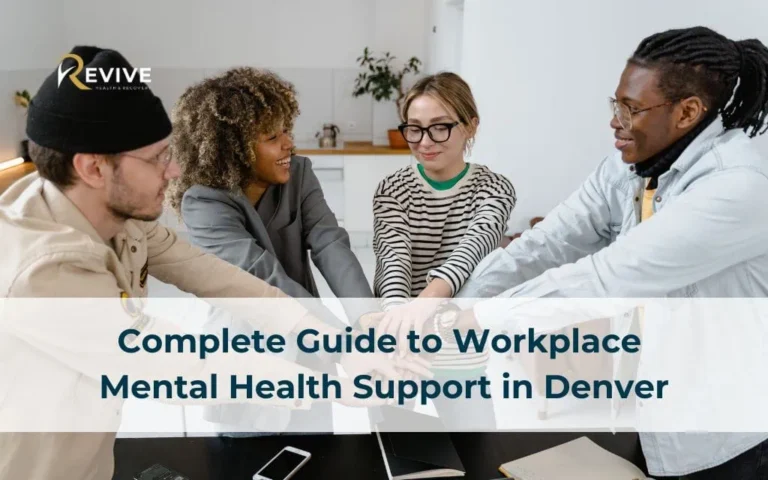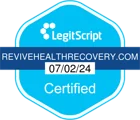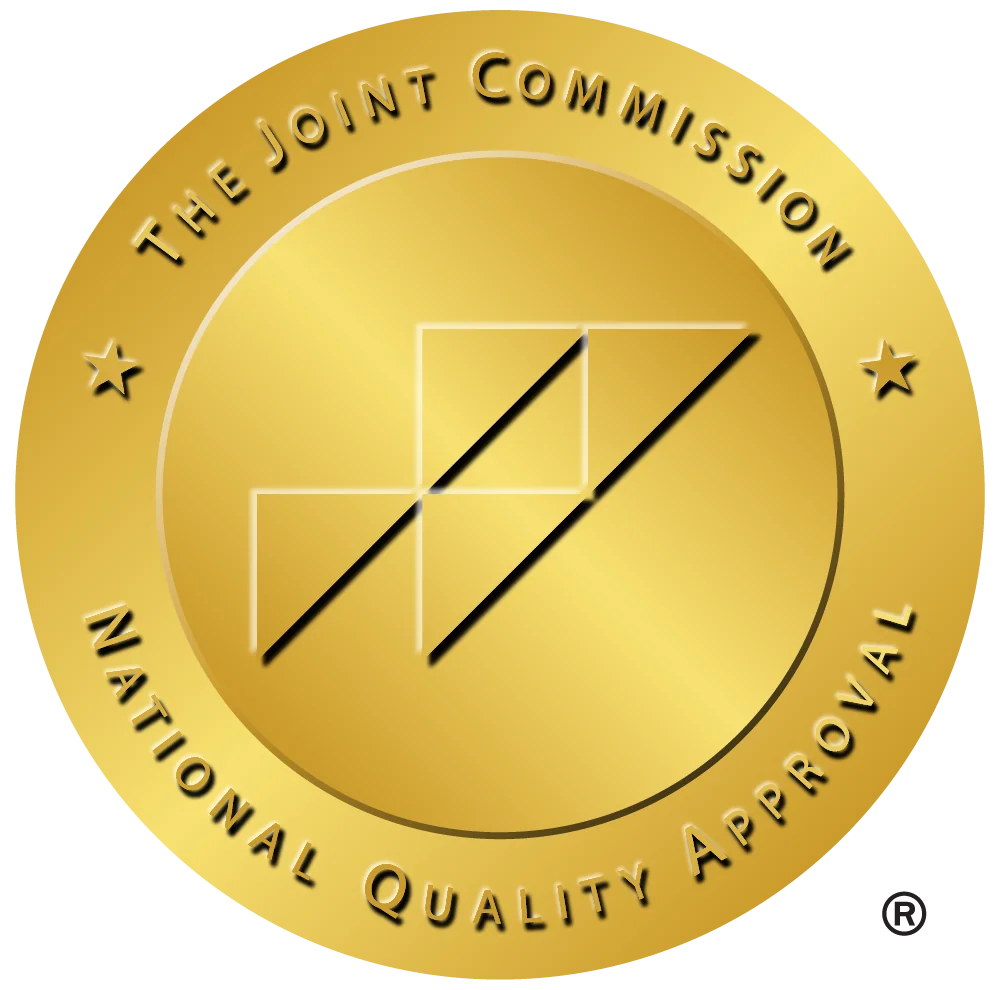Struggling with substance use can leave individuals and families feeling overwhelmed, unsure where to turn for help. The symptoms of withdrawal, cravings, and the emotional toll of addiction often make recovery seem like an impossible journey. Understanding the right treatment options is critical to overcoming these challenges and regaining control of your life.
That’s where Medication-Assisted Treatment (MAT) Denver comes in—a proven method combining medications with counseling and therapy to provide comprehensive support for recovery. At Revive Health Recovery, we’re dedicated to addressing these important health topics, offering compassionate care and evidence-based solutions for individuals in Denver seeking a path to lasting sobriety.
Understanding Medication-Assisted Treatment (MAT)
What is Medication-Assisted Treatment (MAT)?
Medication-Assisted Treatment (MAT) combines FDA-approved medications with counseling and behavioral therapies to treat substance use disorders (SUDs). This “whole-patient” approach is particularly effective for individuals struggling with opioid or alcohol addiction, addressing both the physical and psychological aspects of dependency. MAT not only reduces cravings and withdrawal symptoms but also blocks the euphoric effects of substances, helping individuals transition more smoothly into recovery.
In Denver, MAT has become a crucial tool in combating substance use disorders, particularly amid rising opioid addiction rates. Local facilities like Revive Health Recovery integrate MAT into comprehensive treatment programs, offering personalized care tailored to the needs of the community. With increasing awareness and access to MAT in Denver, more individuals are finding effective support for long-term recovery.

What are the Components of MAT?
MAT is built on two key components:
FDA-Approved Medications
Medications are used to reduce cravings, block the rewarding effects of substance use, and stabilize patients during withdrawal. Depending on the substance, the medications may include:
- Methadone: Used for opioid use disorder to reduce withdrawal symptoms and cravings.
- Buprenorphine (Suboxone®): Eases opioid withdrawal symptoms and reduces cravings.
- Naltrexone (Vivitrol®): Blocks the euphoric effects of opioids or reduces the rewarding effects of alcohol.
- Disulfiram: Used for alcohol addiction to create a physical reaction when alcohol is consumed.
Counseling and Behavioral Therapy
Behavioral therapies work alongside medications to address emotional and psychological factors of addiction. These therapies include Cognitive Behavioral Therapy (CBT), trauma-informed care, and motivational interviewing. Together, they help individuals develop healthy coping strategies, rebuild relationships, and learn how to avoid triggers.
Who is Medication-Assisted Treatment For?
MAT is most commonly recommended for individuals dealing with opioid use disorder (OUD) or alcohol use disorder (AUD). It is suitable for those who:
- Struggle with severe cravings or withdrawal symptoms that hinder recovery.
- Have experienced multiple relapses and need additional support to maintain sobriety.
- Suffer from co-occurring mental health conditions that make abstinence more challenging.
- Are seeking a holistic treatment approach that combines medical and psychological care.
MAT is designed to meet patients where they are in their recovery journey, offering tailored solutions based on their unique needs. It is especially effective for individuals ready to commit to recovery but require additional support to manage withdrawal symptoms, mental health challenges, or both.
How MAT Works and Its Benefits
How Does MAT Help?
Medication-Assisted Treatment (MAT) Denver combines FDA-approved medications with counseling and therapy to provide a comprehensive approach to treating substance use disorders. For individuals battling opioid or alcohol addiction, MAT helps stabilize the body by reducing cravings, alleviating withdrawal symptoms, and normalizing brain chemistry. Medications like methadone, buprenorphine, naltrexone for opioids, or disulfiram and acamprosate for alcohol, make it easier for patients to focus on recovery without the constant struggle of physical and psychological dependency.
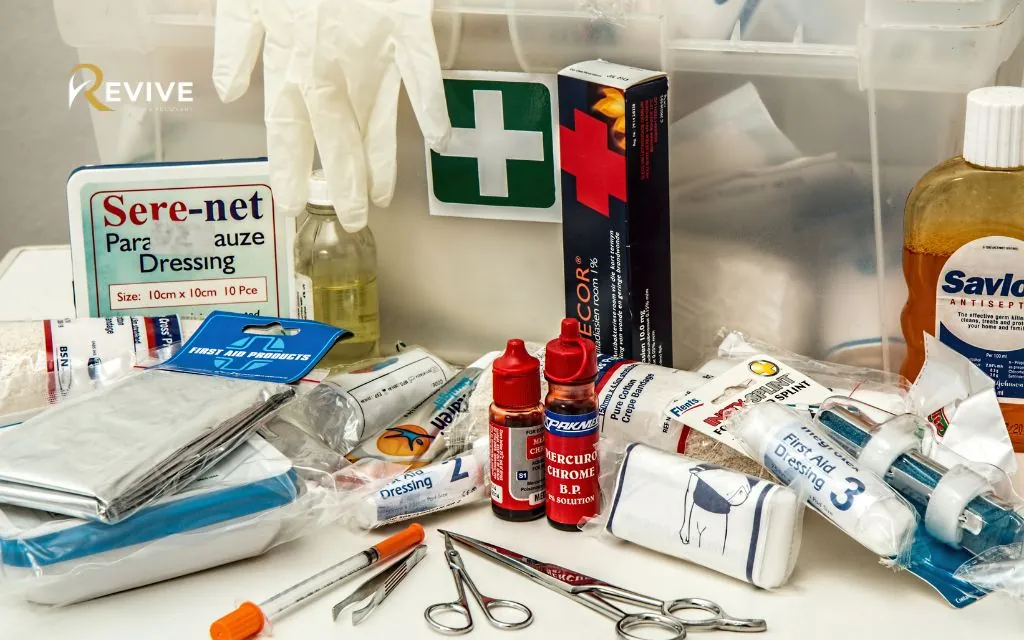
Beyond medical stabilization, MAT incorporates behavioral therapies, such as Cognitive Behavioral Therapy (CBT) and group counseling, to address the emotional and mental health challenges associated with addiction. This whole-patient approach supports recovery and reduces the likelihood of relapse by helping patients rebuild healthier routines and coping mechanisms.
Benefits of Medication-Assisted Treatments
MAT offers numerous benefits that make it an effective choice for many individuals:
- Decreases Overdose Deaths: MAT significantly reduces the risk of opioid overdose fatalities, providing a safer path to recovery.
- Improves Social Functioning: Patients engaged in MAT are better equipped to return to work, rebuild relationships, and regain their quality of life.
- Reduces Criminal Activity: By curbing substance use, MAT lowers the likelihood of criminal behavior tied to addiction.
- Decreases Transmission of Diseases: MAT helps reduce risky behaviors like needle sharing, minimizing the spread of HIV and Hepatitis C.
- Improves Pregnancy Outcomes: For pregnant women with substance use disorders, MAT enhances both maternal and fetal health outcomes.
With decades of clinical research backing its effectiveness, MAT has become a cornerstone in addiction treatment, helping countless individuals achieve long-term recovery.
MAT Statistics, Effectiveness, and Goals
Statistics highlight the success and widespread adoption of MAT for treating substance use disorders:
- Opioid Use Disorder (OUD): In 2021, 5.6 million people aged 12 or older had OUD, with 73% of those in treatment receiving MAT.
- Alcohol Use Disorder (AUD): Of the 29.5 million individuals with AUD, 381,000 received MAT as part of their treatment plan.
- Methadone and Buprenorphine Treatment: On a single day in March 2020, over 340,000 people were actively receiving treatment with methadone or buprenorphine in certified programs.
MAT has proven effective not only in managing withdrawal and cravings but also in achieving broader goals such as:
- Increased Treatment Retention: Patients using MAT are more likely to stay engaged in their recovery programs.
- Reduced Inpatient Detox Needs: MAT decreases the necessity for repeated detox interventions.
- Lower Risk of Relapse: By addressing both physical and psychological aspects of addiction, MAT helps sustain sobriety over time.
The ultimate goal of MAT is to empower individuals to rebuild their lives, addressing vocational, medical, and mental health concerns while fostering long-term recovery.
Medications Used in Medication-Assisted Treatment (MAT) Denver Programs
What Medications Can Be Used to Treat Opioid Addiction?
For individuals struggling with opioid use disorder (OUD), MAT programs in Denver use three main FDA-approved medications:
- Methadone: A long-acting opioid agonist, methadone reduces withdrawal symptoms and cravings by stabilizing brain chemistry. It is dispensed in certified facilities under medical supervision and is particularly effective for individuals with severe OUD.
- Buprenorphine (Suboxone®): This partial opioid agonist binds strongly to opioid receptors, minimizing cravings and withdrawal symptoms without producing the intense highs associated with other opioids. It’s commonly prescribed in outpatient settings, making it a flexible option for those in recovery.
- Naltrexone (Vivitrol®): An opioid antagonist, naltrexone blocks the euphoric effects of opioids. Unlike methadone and buprenorphine, it doesn’t activate opioid receptors, making it ideal for individuals who have already detoxed.
These medications work best when combined with behavioral therapies, providing a comprehensive treatment plan that addresses both physical and psychological aspects of addiction.
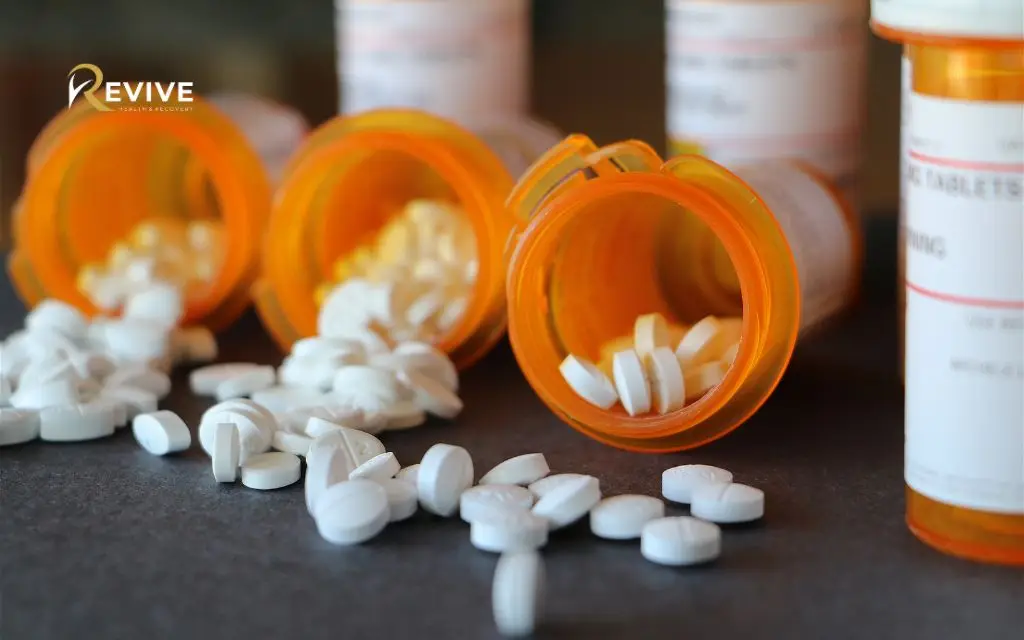
Medications Used to Help You Stop Drinking Alcohol
MAT isn’t just for opioids—it’s also highly effective in treating alcohol use disorder (AUD). The following medications are commonly used:
- Disulfiram: This medication creates an unpleasant reaction to alcohol, causing symptoms like nausea and flushing if alcohol is consumed. It’s a powerful deterrent for individuals committed to abstinence.
- Naltrexone: Used for both alcohol and opioid addiction, naltrexone reduces the rewarding effects of alcohol and helps control cravings. It can be taken daily as a pill or monthly as an injection.
- Acamprosate: Designed to restore brain balance after long-term alcohol use, acamprosate reduces the desire to drink. It’s taken daily and is most effective for individuals who have already stopped drinking.
When paired with counseling and therapy, these medications offer individuals struggling with AUD the support they need to maintain sobriety and prevent relapse.
Three Medications Approved by the FDA for MAT
The FDA has approved three key medications for Medication-Assisted Treatment programs: methadone, buprenorphine, and naltrexone. These medications have been proven to be safe and effective for treating opioid use disorder (OUD) when used as part of a comprehensive treatment plan.
- Methadone: A full agonist that helps manage withdrawal symptoms and reduces cravings.
- Buprenorphine: A partial agonist that provides relief without producing strong euphoric effects.
- Naltrexone: A receptor blocker that prevents opioids from taking effect, discouraging continued misuse.
By incorporating these medications into MAT programs in Denver, individuals are given the tools they need to safely manage their addiction, reduce the risk of relapse, and work toward long-term recovery.
What to Expect from MAT Programs in Denver
Medication-Assisted Treatment (MAT) Denver provides individuals with a structured and supportive environment to address substance use disorders. By combining FDA-approved medications with behavioral therapy, MAT programs offer a holistic approach to recovery. Here’s what you can expect when starting an MAT program in Denver.
What to Expect in MAT Treatments
MAT programs begin with a thorough assessment by medical professionals to develop a personalized treatment plan. This process typically includes:
- Initial Evaluation: A medical team assesses your medical history, substance use patterns, and overall health to determine the best course of treatment.
- Detox Support: If necessary, MAT includes medications like methadone, buprenorphine, or naltrexone to ease withdrawal symptoms and stabilize the body.
- Therapy Integration: Counseling and behavioral therapies, such as Cognitive Behavioral Therapy (CBT) or group counseling, are essential components of MAT. These sessions help individuals identify triggers, build coping mechanisms, and create healthy habits.
- Ongoing Monitoring: Regular check-ins with medical providers ensure the treatment plan is working and medications are adjusted as needed.
In Denver, MAT programs are designed to support not just physical recovery but also emotional and psychological well-being, creating a strong foundation for long-term sobriety.
How Long Does MAT Last?
The duration of Medication-Assisted Treatment (MAT) Denver depends on addiction severity, recovery progress, and clinician recommendations. Some may stay on MAT for months or years. When it’s time to stop, doctors provide support for safely tapering off medication.
Is Medication-Assisted Treatment Denver Replacing One Drug for Another?
A common misconception about MAT is that it simply replaces one drug with another. This is not true. The medications used in Medication-Assisted Treatment, such as methadone or buprenorphine, are carefully prescribed and monitored by medical professionals. Unlike illicit drugs, these medications:
- Do not produce the same euphoric effects.
- Stabilize brain chemistry to reduce cravings and withdrawal symptoms.
- Help individuals regain control over their lives without the harmful consequences of addiction.
MAT is a medically supervised treatment designed to manage addiction as a chronic condition, much like insulin for diabetes or medication for hypertension. When combined with therapy, it provides a comprehensive path to recovery.
Confidentiality, Insurance, and Costs of MAT
Does Insurance Cover MAT Treatments?
Yes, many insurance plans cover Medication-Assisted Treatment programs in Denver. The Affordable Care Act and the Mental Health Parity and Addiction Equity Act require most insurance providers to include coverage for substance use disorder treatment, including MAT. Coverage typically includes:
- FDA-Approved Medications: Methadone, buprenorphine (Suboxone®), and naltrexone (Vivitrol®) are often covered.
- Therapy Services: Behavioral counseling and group therapy sessions.
- Outpatient or Inpatient Treatment Programs: Depending on the patient’s needs.
It’s important to check with your insurance provider or the MAT program to confirm specific coverage. Facilities like Revive Health Recovery assist patients in verifying insurance benefits and exploring flexible payment options to ensure affordability.
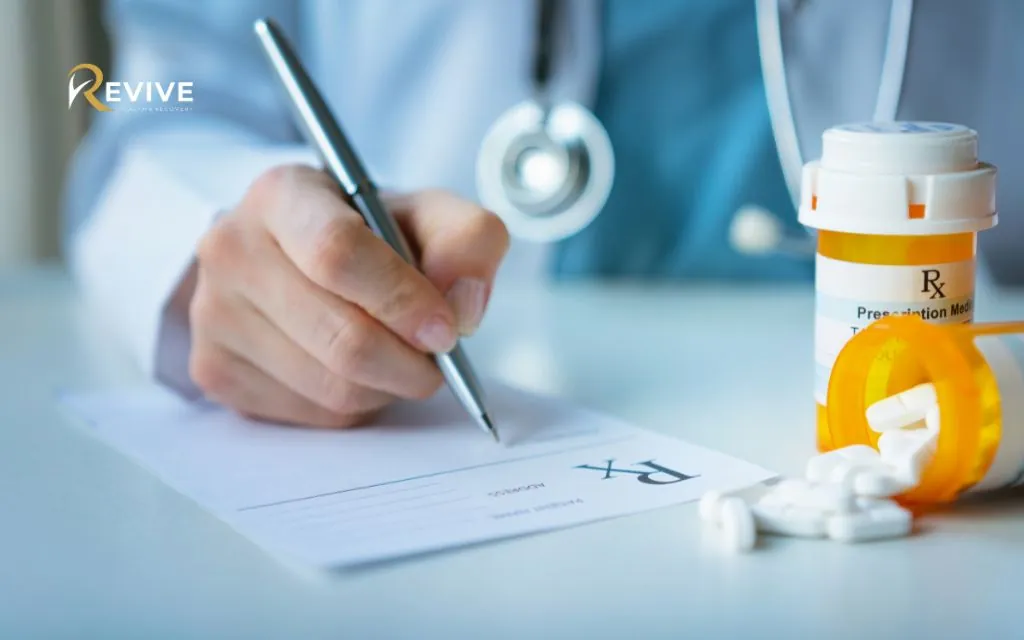
Confidentiality of MAT and Treatment
MAT programs prioritize patient privacy and confidentiality. Federal laws, such as the Health Insurance Portability and Accountability Act (HIPAA), ensure that your personal information and treatment records are protected. Patients can feel confident that:
- Records Are Secure: Your medical history and treatment details are only shared with authorized professionals involved in your care.
- Discretion is Maintained: Programs are designed to provide a safe, judgment-free environment where patients can focus on recovery without fear of stigma.
At Revive Health Recovery, confidentiality is a top priority, creating a secure space for patients to heal and recover with dignity.
Costs Associated with MAT in Denver
The cost of Medication-Assisted Treatment (MAT) Denver programs varies depending on the type of treatment and duration of care. Factors influencing costs include:
- Type of Medication: Methadone and buprenorphine are generally more affordable, while naltrexone (especially injections like Vivitrol®) may have higher costs.
- Program Type: Inpatient programs typically cost more than outpatient services due to the added accommodations and around-the-clock care.
- Insurance Coverage: Out-of-pocket costs depend on your insurance plan and coverage specifics.
These average costs can range from $500 to $5,000 per month, depending on the services provided. Many facilities, including Revive Health Recovery, offer sliding-scale fees or payment plans for uninsured patients, making treatment accessible to those who need it most.
Finding the Right MAT Program in Denver
How to Find MAT Treatment Near Me
Finding an MAT program near me begins with research and asking the right questions. Start by looking for treatment centers that specialize in Medication-Assisted Treatment and offer a range of services, including FDA-approved medications and behavioral therapy. Resources to help you locate a program include:
- Online Searches: Search for “MAT program near me” to find local facilities offering this service.
- Referral Networks: Consult your primary care doctor, therapist, or local support groups for recommendations.
- Accredited Directories: Use resources like SAMHSA’s treatment locator or directories for accredited rehab facilities in Denver.
It’s important to consider accessibility, such as location, transportation options, and program flexibility, when choosing a treatment center.
Medication-Assisted Treatment (MAT) Denver Program
Denver is home to numerous Medication-Assisted Treatment programs, offering comprehensive care for individuals struggling with substance use disorders. These programs integrate:
- FDA-Approved Medications: Such as methadone, buprenorphine (Suboxone®), or naltrexone (Vivitrol®) to manage withdrawal symptoms and cravings.
- Behavioral Therapy: Counseling and support to address the emotional and psychological challenges of addiction.
- Flexible Options: Many Denver facilities offer both inpatient and outpatient programs, along with telehealth services for those who prefer virtual care.
At Revive Health Recovery, our MAT program in Denver is designed to meet the unique needs of each patient, providing personalized care and support to help you achieve long-term sobriety.
Choosing a Reliable Medication-Assisted Treatment (MAT) Denver Program
Selecting a reliable MAT program in Denver requires evaluating key factors to ensure high-quality care:
- Accreditation and Licensing: Verify that the facility is accredited by reputable organizations and employs licensed medical professionals.
- Comprehensive Services: Look for programs that offer a combination of medication, therapy, and aftercare support for holistic recovery.
- Customized Treatment Plans: A good MAT program tailors its services to meet your individual needs, addressing both physical and mental health concerns.
- Insurance and Affordability: Ensure the program accepts your insurance or offers payment options like sliding-scale fees to make treatment accessible.
- Patient Reviews: Check testimonials or reviews to learn about other patients’ experiences with the facility.
Facilities like Revive Health Recovery prioritize these elements, making them a trusted choice for Medication-Assisted Treatment in Denver. With a patient-centered approach and flexible options, you can feel confident in taking the next step toward recovery.
Addressing Misconceptions About MAT
Misconceptions About MAT

“MAT Replaces One Addiction with Another”
One of the most common misconceptions is that MAT simply substitutes one drug for another. This is false. Medications like methadone, buprenorphine, and naltrexone are carefully prescribed and monitored by medical professionals. These medications stabilize brain chemistry, reduce cravings, and allow individuals to focus on rebuilding their lives without experiencing the highs or harmful effects of substances.
“MAT Is Not a Real Treatment”
Some believe that MAT is less effective than abstinence-based recovery methods. However, decades of clinical research prove that MAT significantly improves treatment outcomes by combining medications with behavioral therapies, addressing both the physical and psychological aspects of addiction.
“MAT Is Only for Severe Cases”
While MAT is commonly used for individuals with opioid use disorder (OUD) or severe alcohol addiction, it is also beneficial for those who may struggle with cravings or have a history of relapse. MAT programs in Denver are personalized to meet the needs of each patient, regardless of the severity of their addiction.
“MAT Is a Lifelong Commitment”
While some individuals benefit from long-term MAT, it is not always a permanent solution. Many patients taper off medications under medical supervision as they progress in their recovery journey.
How MAT Makes a Difference
Medication-Assisted Treatment (MAT) Denver significantly improves recovery outcomes by reducing relapse risks and overdose deaths. It addresses addiction as a treatable medical condition, helping to reduce stigma and promote understanding. MAT not only stabilizes health but also equips individuals with tools to rebuild their lives, making it a powerful step toward long-term recovery.
Conclusion
Choosing the right Medication-Assisted Treatment (MAT) Denver Program can make all the difference in your recovery journey. With a personalized approach, professional support, and a focus on long-term success, Revive Health Recovery offers comprehensive MAT services to help you achieve lasting sobriety. Contact us today to learn more and take the first step toward a healthier, addiction-free life.
